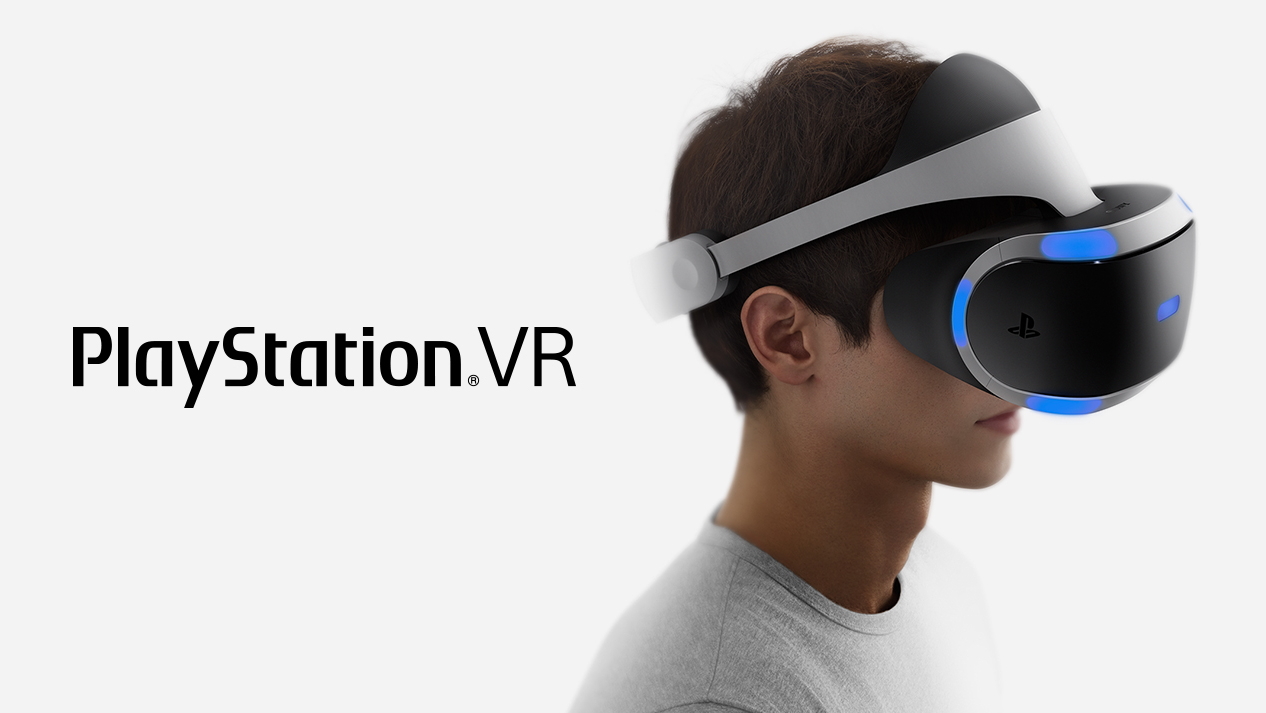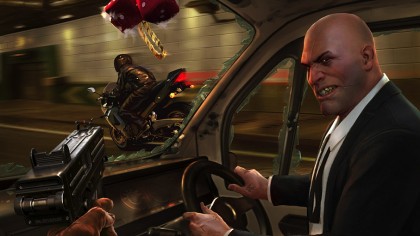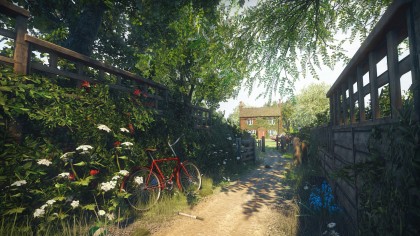PlayStation VR needs to decelerate to accumulate
If Sony wants to rule virtual reality, it should walk before it shoots

Once upon a time there was a boy.
Fresh faced and dosed up to the nines with sugar, the chubby minor descended upon the upper floor of London's Trocadero (back when it was SegaWorld and peak '90s). Teeming with blue neon lights, seizure-baiting strobes and down-on-their-luck students dressed in Sonic costumes, the boy found himself in a prepubescent heaven of arcade cabinets and Dr Robotnik-adorned dodgems. And then his eyes fell upon the motherload. A VR ride.
An actual virtual reality ride straight out of The Lawnmower Man.
An hour later the hyperactive halfling was strapped into a chunky seat while an equally huge headset was strapped to his noggin. He opened his eyes and found himself sitting in one of four brightly coloured buggies overlooking a giant bowl arena.
Suddenly, a massive beach ball dropped from the sky.
The little lad can't believe his luck. He shoots out into the bowl, flicking his head around in awe. He aims for the ball, but someone flies in from the side and t-bones him. He goes flying. The virtual world spins. His stomach does a triple somersault.
And he throws up. Everywhere.
Sign up for breaking news, reviews, opinion, top tech deals, and more.
Whether or not said boy happens to be this writer is besides the point - the cautionary tale of Buggy Ball and the sugar-lined stomach remains the same: virtual reality and high octane games don't often mix well.
It's a notion that rings louder than ever now that VR finds itself in renaissance. Every man and his dog seems to have an Oculus, a Vive or a HoloLens to their name. Those chunky units of the early to mid '90s are long gone - eschewed in favour of sleeker forms, all rounded edges and completely essential neon lights.
The bigger issue here isn't the tech itself - our recent PlayStation VR hands-on proved its got potential - but rather the software studios will potentially develop for it.
Still game
For Facebook's Oculus and HTC's Vive, their PC positioning makes them as ideal for educational and training purposes as they are for games.
But for Sony's newly christened PlayStation VR (or the artist formerly known as Project Morpheus), the playing field is far more distinct. PlayStation 4 may flirt with the idea of being an all-round entertainment system, but this isn't a console reeling from the same identity issues as Microsoft's still-recovering Xbox One. PlayStation is all about the games.

But if VR is to survive - if it's to prove itself in the eyes of the mainstream user that it's more than another fad like motion controls (poor old Kinect and PS Move) - then it needs to offer a gaming experience like no other.
Shoehorning on a version of the latest Call Of Duty won't shift you god-like numbers (just at the poor PS Vita and the abominable COD that did nothing to help the handheld's meagre commercial performance).
VR is a whole new platform, but it's one that isn't playing by the same rules of interaction.
A cursory glance at PlayStation VR's confirmed launch titles and you'd be fooled into thinking action was the order of the day. The sci-fi dogfighting of EVE: Valkyrie; the Gran Turismo-aping Project CARS; the gun-toting mayhem of London Heist; the MMO frackas of Final Fantasy XIV.
All fine games in their own right, but ones built on the misguided assumption that immersion must equal bullets flying and tyres burning on tarmac.
But don't be fooled.
Sure, PS VR could be tailored for Driveclub's stunning chicanes or retooled for Rocket League's Trocadero-worthy matchups, but PlayStation VR needs to set itself apart. If the vomit-inducing roller coaster simulators on Oculus Rift have taught us anything, it's that throwing your user's senses through the ringer isn't the righteous path to acceptance.
The VR of PlayStation needs to think smart and take a different approach. In other words - Sony needs to take it slow.
Get carter
Some of the most engaging and immersive experiences of the past few years haven't been action-infused thrill rides but slow, protracted affairs that make your work for their treasures not with bullets and gasoline, but with measured actions and mysteries that unravel with time and dedication.
This year alone we've seen two captivating titles that exude such qualities - The Chinese Room's wonderful Everybody's Gone To The Rapture and The Astronauts' haunting The Vanishing Of Ethan Carter - and they're the perfect candidates to bring a sense of class and measured spectacle to Sony's upcoming headset.
Sadly, neither of these little gems have been confirmed for PS VR, but they're prove that our tastes are changing radically.

With the technology now available not only to support more diverse development but to make it a financially viable platform for the modern consumer, VR has the potential to offer storytelling and a sense of immersion like we've never seen.
Jonathan Blow, the man behind Braid and upcoming first-person puzzler The Witness, has hinted that his new project could support Sony's headset somewhere down the line. Considering The Witness is all about uncovering puzzles across a bright and colourful open-world, it seems like a match made in virtual heaven.
Horror, a genre finally shedding its long association with the now stale zombie craze, is another perfect fit for PlayStation VR.
Just take a look at the Capcom produced Kitchen - a terrifyingly brutal demo that sees you strapped to a chair while a bedraggled psychopath has her way with a kitchen knife. Horror, by its very nature, is at its most potent when you're at your most vulnerable. And what better way to up your anxiety levels that actually entering a world of pain for the very first time?
Just imagine how jumpy your poor ticker will be after a few sessions of Five Nights At Freddy's 2 with a VR headset on? And with Capcom also showing interest in developing VR-focused software for PSVR, there's never been a better time to shed off all those bullets and start enjoying a new pace of gaming experience.
Even if your heart gives out halfway through.